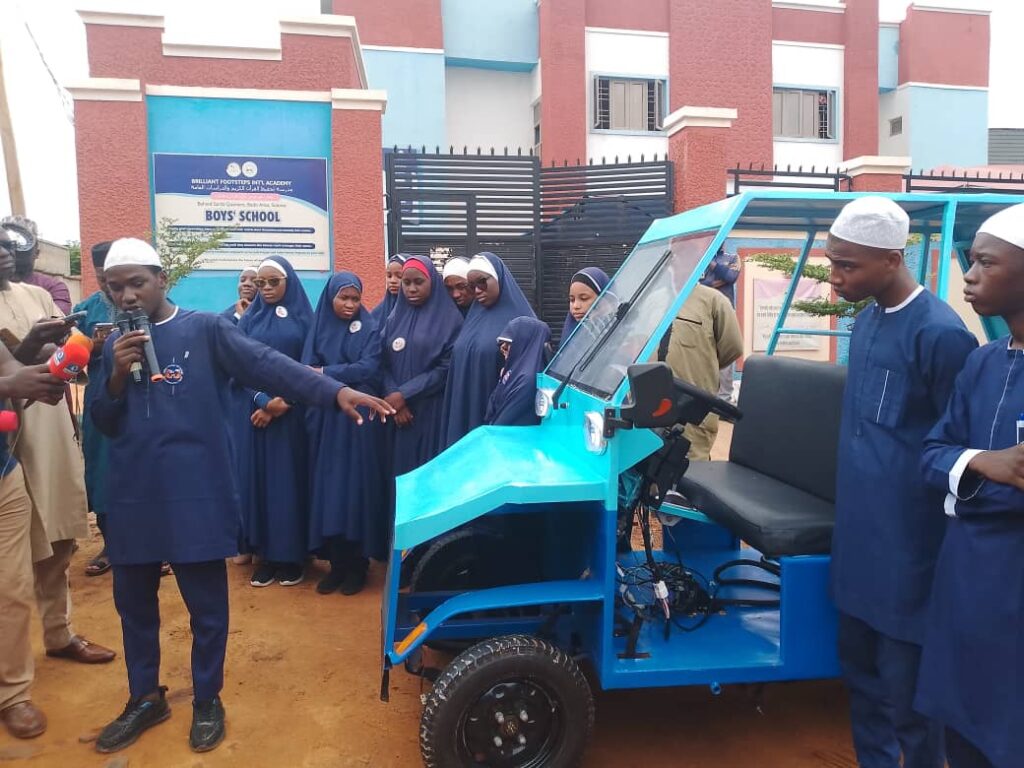From Umar Danladi Ado, Sokoto
In a remarkable feat of innovation, 15 final-year students of Brilliant Footsteps International Academy in Sokoto State have built a fully functional electric car, showcasing the ingenuity of young Nigerians in tackling climate change and embracing sustainable technology.
The project, executed with support from Brilliant Maglush Tahafiz, was driven by a team of 10 girls and 5 boys, all SS3 students. The students combined their skills in mechanical engineering, electrical design, and project coordination to bring the idea to life using mostly local raw materials.
Speaking during a press briefing on Saturday, the Managing Director of the academy, Dr Shadi Sabey, hailed the invention as “a paradigm shift” in grassroots innovation and mindset development.
“They used local raw materials. They solved practical problems. This isn’t about copying — it’s about creating,” Sabey said. “What you see here is proof that innovation can emerge from places the world doesn’t always expect.”
The student-led team, spearheaded by Ayman Shadi, developed the car’s electrical framework and assembled the mechanical components, many of which were either repurposed or sourced locally. The result: a compact electric vehicle with an impressive battery life.
“On a full charge, it drives smoothly for four hours,” Ayman said with pride. “We’re now working on increasing the range.”
The initiative was largely led by teenage girls who are determined to change the narrative about gender roles in science and technology.
“Technology is not just for boys. We want to show the world that girls can build too,” one of the team members said.
The students said the project was inspired by concerns about climate change and the urgent need for cleaner transportation solutions in Nigeria. With continued support, the team hopes to improve the design and scale up production.
The breakthrough has been hailed by many in the education and innovation sectors as a milestone in promoting STEM (Science, Technology, Engineering, and Mathematics) education among young Nigerians, particularly girls.


